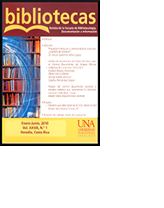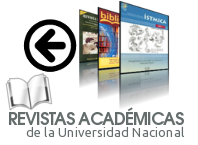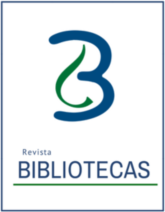Free software: An alternative to automate information units
Keywords:
Library automation, Free software, Automated librariesAbstract
The document describes the budgetary problem in the information units and the high costs of the commercial software specialized in the automation of libraries. It describes the origins of free software and its meaning. It mentions the three levels of automation within a library: catalog automation, repository generation and comprehensive automation. It points out the different free software applications for each of the levels and offers a series of advantages and disadvantages in the use of this type of products. It is concluded that the automation project is arduous but full of satisfactions, emphasizing that there is no project free of costs, because although it is true that free software is free, there are other costs related to the implementation, training and implementation of the project.
References
Arriola, Ó.; Butrón, K. (2008). Sistemas integrales para la automatización de bibliotecas basados en software libre. ACIMED 18(6). Consulta del 30 de junio 2010 de http://www.bvs.sld.cu/revistas/aci/vol18_6_08/
BIREME (2006). Manual del usuario de la IAH. Sao Pablo: BIREME / OPS / OMS
Espabiblio: Sistema de Gestión de Bibliotecas. (s.f.). Consulta del 11 de agosto, 2010 de http://www.desem.cl/espabiblio/
Free Software Foundation. (s.f.). Consulta del 26 de junio, 2010 de http://www.fsf.org/
GNU General Public License. (s.f.). Consulta de 26 de junio de 2010 de http://www.gnu.org/copyleft/gpl.html
Grupo de desarrollo de Koha-UNLP (2009). Koha: sistema integrado de gestión de bibliotecas. Argentina: Universidad Nacional de La Plata
Lee, M. (2010). What is free software and why is it so important for society?. Free Software Foundation. Consulta del 26 de junio, 2010 de http://www.fsf.org/about/what-is-free-software
Mejía, J. (2010). Sistemas integrales para la automatización de bibliotecas basados en software libre. Exágono bibliotecario. Consulta del 30 de junio, 2010 de http://exagonobibliotecario.blogspot.com/2010/03/sistemas-integrales-para-la.html
Portal del proyecto Open Marco Polo. (s.f.). Consulta del 11 de agosto, 2010 de http://marcopolo.uner.edu.ar/
Rodríguez, J.; Sulé, A. (2008). DSpace: un manual específico para gestores de la información y la documentación. Bid (20), junio
Saorín, T. (2002). Modelo conceptual para la automatización de bibliotecas en el contexto digital. Murcia: Universidad de Murcia.
Downloads
Published
How to Cite
Issue
Section
License
Bibliotecas provide immediate open access to their content, based on the principle of facilitating research to the public free of charge and free of charge to promote the global exchange of knowledge.
The journal Bibliotecas is a publication hosted by a public higher education institution, which is supported by public resources. Since its inception, the magazine has offered all its contents free of charge without any restriction on the rights of: reading, downloading and printing in full text. Works published in libraries may be analyzed, quoted and reproduced in whole or in part, mentioning the original source.
The journal Bibliotecas is licensed under the Creative Commons Attribution - Non-Commercial - Share Equal, 4.0 International license; therefore, it is allowed to: share, copy and redistribute the material in any medium or format.

Este obra está bajo una licencia Creative Commons Atribución-NoComercial-CompartirIgual 4.0 Internacional.









